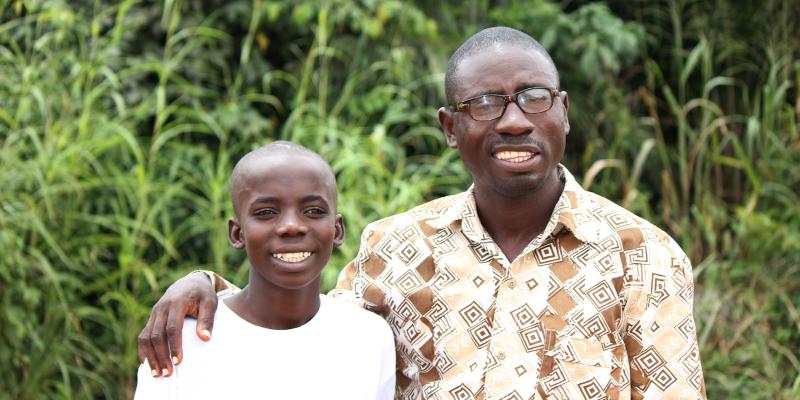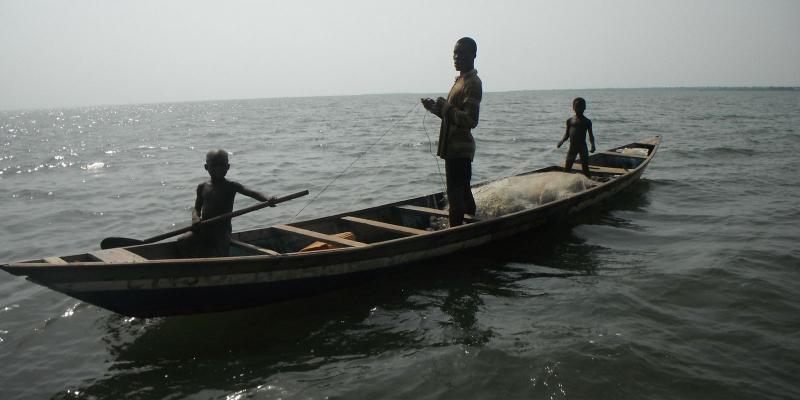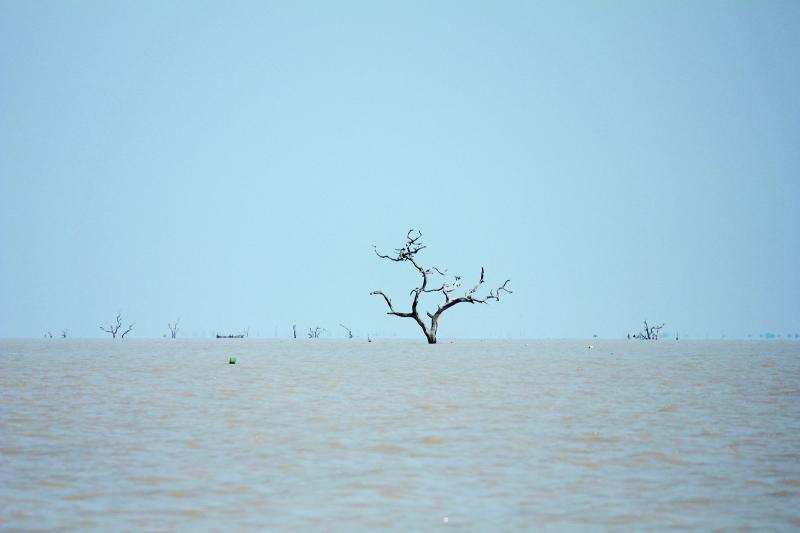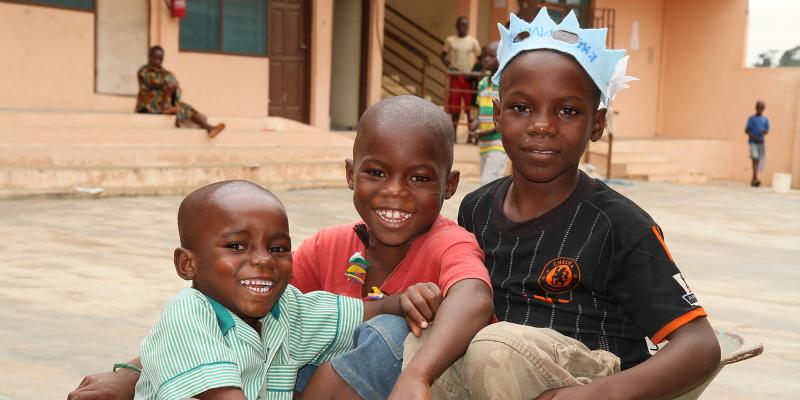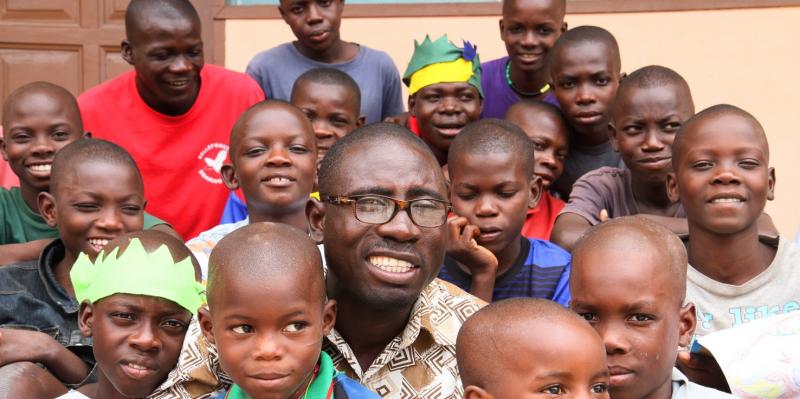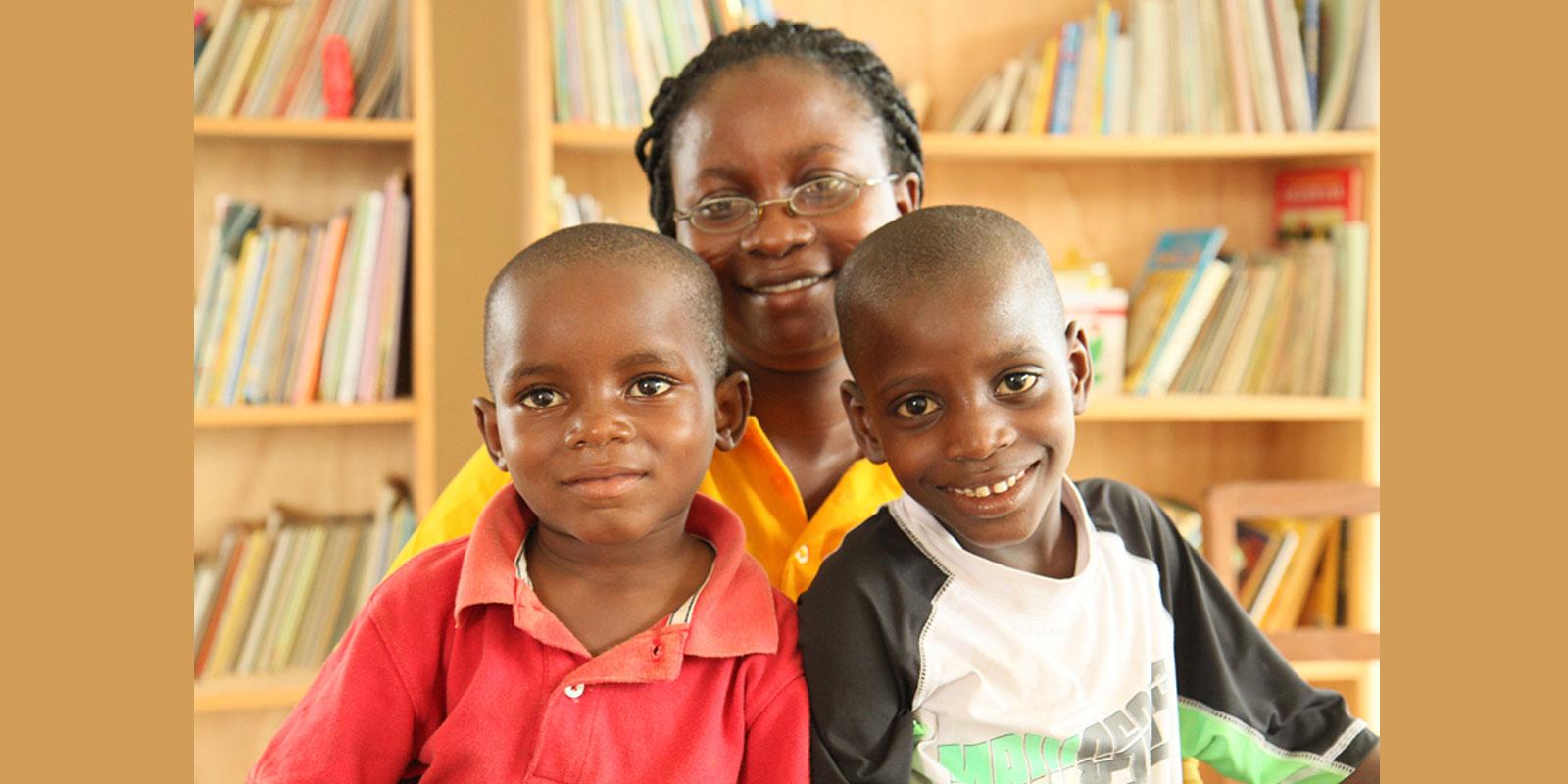
“When the children arrive they are often scared, and some of them have stopped talking altogether,” says Linda, the director. She is holding the two youngest children – Kweku, 5, and Junior, 6.
“When the children are freed from slavery they come here to stay first, from four months up to one year.
The children are often traumatised when they arrive,” explains Linda Osabutey. She is the director of the safe home. Being ‘traumatised’ is when you have been through a terrible experience that has damaged you.
“The children are scared and insecure. They don’t want to make eye contact and they find it hard to sleep. Sometimes they have stopped talking altogether. We have had children here who haven’t started talking until they’ve been here several months. Some of them don’t even know their own names, or their parents’ names.”
Linda explains that sometimes the children have been slaves for so long that their parents don’t recognise them any more, and the children don’t recognise their parents either.
At the safe house, the children are given medical examinations and they receive help to get their inner strength back.
“They’ve had so many beatings and scoldings that they don’t have any self-esteem left,” says Linda. “The children get lots of help, including art therapy, where they can paint, draw and create. That helps them to get stronger.
“A simple thing like being able to write your name gives you a real boost. And their parents are proud and understand that school is important. Many children have never felt loved. Here they get to be children. Maybe for the first time in their lives. We give them as much care and love as we can, until they are strong enough to go home,” says Linda.
For the whole of the first year after the children have moved back home, Challenging Heights staff visit them and their parents once a week. They want to make sure that the children are being treated well and going to school. After the first year, they visit once every two weeks.
Painting is good for the children. Kojo proudly shows off his aeroplane.
Text: Eva-Pia Worland
Photo: Bo Öhlén
Related stories
Långgatan 13, 647 30, Mariefred, Sweden
Phone: +46-159-129 00 • info@worldschildrensprize.org
© 2020 World’s Children’s Prize Foundation. All rights reserved. WORLD'S CHILDREN'S PRIZE®, the Foundation's logo, WORLD'S CHILDREN'S PRIZE FOR THE RIGHTS OF THE CHILD®, WORLD'S CHILDREN'S PARLIAMENT®, WORLD'S CHILDREN'S OMBUDSMAN®, WORLD'S CHILDREN'S PRESS CONFERENCE® and YOU ME EQUAL RIGHTS are service marks of the Foundation.



